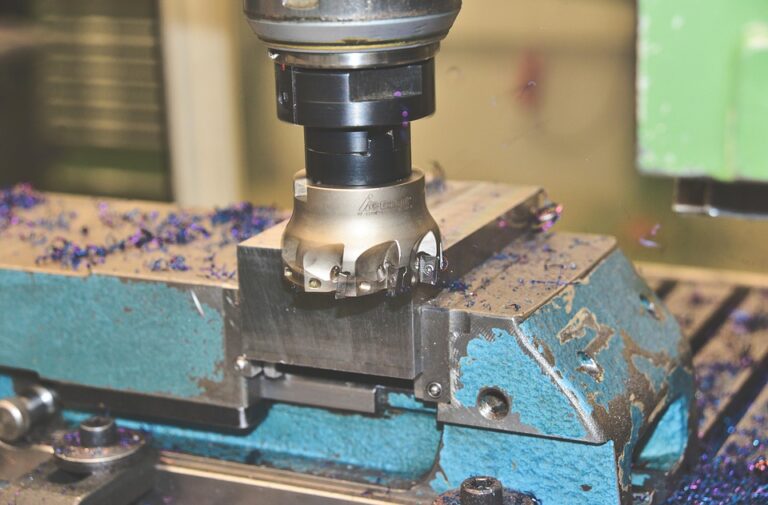Revolutionizing Industry: The Rise of Smart Manufacturing in the Digital Age
In today’s fast-paced world, industries are rapidly transforming thanks to advancements in technology. At the forefront of this evolution is smart manufacturing—a concept that is reshaping the production landscape by integrating digital technologies into manufacturing processes. This article explores how smart manufacturing is revolutionizing industry, enhancing efficiency, and driving innovation in the digital age.
What is Smart Manufacturing?
Smart manufacturing is an advanced approach that utilizes automation, data exchange, and the Internet of Things (IoT) to create more efficient and effective manufacturing ecosystems. By leveraging technologies such as artificial intelligence (AI), machine learning, and cloud computing, companies can streamline operations, reduce costs, and improve product quality.
Key Components of Smart Manufacturing
- IoT Enabled Devices: Sensors and devices collect real-time data from machinery and production lines, allowing manufacturers to monitor operations remotely.
- Advanced Analytics: Data gathered from various sources is analyzed to identify trends, optimize processes, and predict failures before they occur.
- Automation: Robotics and automated systems take over repetitive tasks, enhancing precision and freeing human workers for more complex problem-solving.
- Supply Chain Integration: Smart manufacturing ensures seamless communication between suppliers, manufacturers, and consumers to optimize the entire supply chain.
Why Smart Manufacturing Matters
Current Industry Statistics
According to a report by the Boston Consulting Group, the global smart manufacturing market is expected to reach $384 billion by 2023, growing at a compound annual growth rate (CAGR) of 10%. Another study by Statista reveals that nearly 70% of manufacturers believe smart manufacturing will significantly enhance their productivity within the next five years.
These statistics illustrate the growing recognition among industry leaders that smart manufacturing is not just a trend but a necessary evolution for maintaining competitive advantages in today’s market.
Transforming Traditional Manufacturing Models
To visualize the impact of smart manufacturing, consider the analogy of a smart home. Just as smart homes utilize interconnected devices to create a seamless living experience, smart manufacturing employs interconnected systems to facilitate a more efficient production process. With smart technology, factories can respond in real-time to changes in demand or supply chain disruptions, akin to how a smart thermostat adjusts temperature based on feedback from the environment.
Benefits of Smart Manufacturing
Enhanced Efficiency
Smart manufacturing systems can optimize production schedules, reduce downtime, and significantly lower operational costs. By applying data-driven decision-making, manufacturers can respond quickly to market demands without overproducing or incurring excess waste.
Improved Quality Control
High levels of automation and real-time data monitoring lead to greater consistency in product quality. Advanced analytics can detect defects early in the manufacturing process, allowing companies to address issues before they escalate.
Greater Flexibility
Smart manufacturing allows companies to rapidly adapt their processes to accommodate new products or changes in consumer preferences. This flexibility is crucial in an era where consumer demands are continually evolving.
Sustainability and Resource Management
By optimizing production processes and minimizing waste, smart manufacturing contributes to more sustainable practices within the industry. Companies can reduce their carbon footprint and use resources more efficiently, appealing to eco-conscious consumers.
Challenges in Implementing Smart Manufacturing
Despite its advantages, the transition to smart manufacturing is not without challenges. High upfront costs, the complexity of integrating new technologies, and the need for skilled workers can pose significant barriers to entry. Manufacturers must invest in training their workforce and ensure data security to safeguard sensitive information.
Future Outlook for Smart Manufacturing
The future of smart manufacturing appears bright. With increasing investments in technology and infrastructure, industries are likely to see more widespread adoption of smart manufacturing practices. Companies that embrace these changes early on will not only enhance their operational efficiency but also gain a competitive edge in their respective markets.
Conclusion
As we delve deeper into the digital age, the rise of smart manufacturing will undoubtedly reshape the industry landscape. By leveraging technology, manufacturers can optimize operations, improve product quality, and ensure sustainability in their practices. For those interested in the ongoing evolution of manufacturing technologies, this is just the beginning.
For more information about related topics, check out our articles on The Future of Automation and Sustainability in Manufacturing.
To delve deeper into smart manufacturing, refer to the external resources from McKinsey & Company and Industry Week for further insights and expert opinions.
Suggested Multimedia Enhancements:
-
Image 1: Smart Manufacturing Process Diagram
Alt text: "Smart Manufacturing process with IoT integration"
- Image 2: Automated Production Line
Alt text: "Automated production line using smart manufacturing technology"
By integrating these elements, the article effectively captures the importance of smart manufacturing while remaining engaging, informative, and optimized for search engines.


